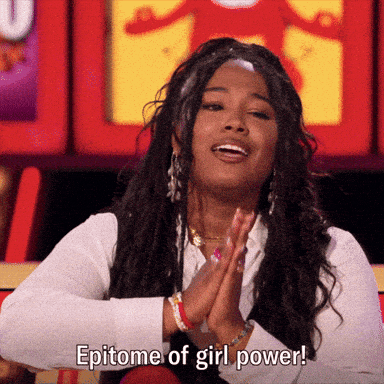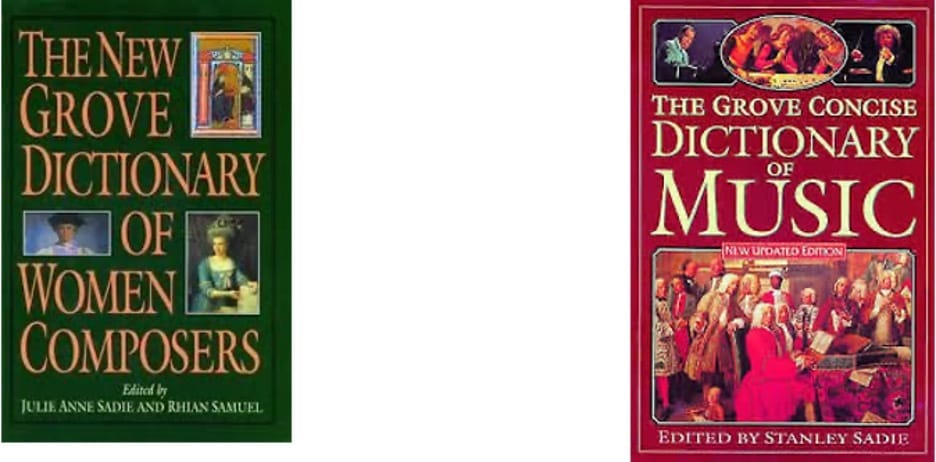Some people graduate with honours. I am just honoured to graduate.
Howdy, this is UniScoops! We’re the newsletter that’s more essential than a 3am Domino’s order during exam season.
So, without further ado…
Here’s a taste of what we’re serving today:
Where Are Women in Music History? 🎼
PLUS: Bringing Chemistry to the Kitchen, The Illusion of Time, and Ancient Garden Cities of the Amazon 🌿
MUSIC
Where Are Women in Music History? 🎼

A quick Google search tells us that the greatest pop musician is David Bowie, the greatest jazz musician is Duke Ellington, the greatest musical theatre composer is Stephen Sondheim, and the best film composer is John Williams. The list of genres and their corresponding ‘greatest’ musicians could continue forever, through plainsong to rock to grime. As Philip Brett sarcastically comments, it seems that the greatest musicians ‘just happens always to be male’ (Brett 1994 pg. 370).
Obviously we can criticize this idea on who the greatest composers are.
Pendle says that the "feminist movement of the 1960s and 70s was the driving force” behind women's work being studied. Pendle also argues that women's studies began much slower in music than in many other fields, “perhaps because musicology was (and in some countries still is) dominated by men schooled in traditional methodologies” (Pendle 2001, p ix). Fortunately, musicologists now recognise that there are many female musicians contributing to a wide number of genres. This has allowed us to explore the reasons why women were so excluded in genres such as classical music, and therefore how we could include them in musicology and concert programs.

You tell ‘em girl!
💡 Things to consider
Overshadowed By Their Male Counterparts: Composers Mozart, Mendelssohn and Schumann are already more famous than their respective counterparts Maria Anna Mozart, Fanny Mendelssohn, and Clara Schuman. This means that before we even begin to listen to their music, we are already primed to compare them to the famous male composers in their life. Also, notice how male composers get the privilege of being referred to by their last name alone, yet female composers are often referred to using their first name.

A family portrait of the Mozarts, including Maria Anna Mozart
Alternative Canon: You will often find anthologies of just female composers, books about female composers or concerts where the repertoire is entirely by women. Some people think this is necessary to allow female composers to have the opportunity to be highlighted , as they have been ignored for so long. Others point out that you never see an anthology of “male composers” rather just “composers” The “Alternative canon project” argue that they don’t discourage engagement with famous male composers but rather “As a targeted space, we hope to contribute to an alternative version of what the canon could look like.” (ACP).

It’s giving alternative
Expanded Canon: Expanded canon is when women are added to our repertoires or anthologies without removing any of the men. Pendle refers to this as simply trying to ‘add and stir’ women into the established system of music history. She is implying that this method doesn’t work because it fails to address the fundamental sexism of the existing approach to music history. Women will still seem inferior, Pendle argues, as expanded canon fails to address the lived experience of female composers, and the challenges they faced to get a music education. An example of expanded canon is A level syllabuses now including female composers such as Clara Schumann.
🔎 Find out more

🍒 The cherry on top
👩🔬 Bringing Chemistry to the Kitchen: Scientists who study the chemical ingredients in food and how they interact with one another are providing new knowledge that chefs are using to make original and savoury dishes. A great read if you’re interested in Chemistry!
⏳ The Illusion of Time: What if time isn’t as real as it feels? This mind-bending article from Space.com dives into the physics and philosophy of time, exploring why some scientists believe it’s nothing more than a human construct. Could our perception of past, present, and future be an illusion? A banging read if you like Physics or Philosophy.
🌿 Ancient Garden Cities of the Amazon: Imagine a sprawling ancient city hidden beneath the Amazon rainforest, complete with garden-like urban planning and sustainable farming techniques. This The Guardian article reveals how Indigenous technologies, like the fertile "terra preta" soil, supported thriving civilizations long before European contact. Could these discoveries reshape our understanding of sustainability and history? Great if you’re into History, Archaeology, or Environmental Science.

👀 Keep your eyes peeled for…
17th February
18th February
19th February
20th February
21st February
🗳️ Poll
How was today's email?
That’s it for this week! We’d like to thank this week’s writer: Michelle Stanley

💚 Like UniScoops?
Forward this edition to someone who’d love to read it for extra kudos!
📢 Want to tell us something?
Reply to this email to tell us what you think about UniScoops, or to give us any suggestions on what you’d like to see.
🧐 New to UniScoops?
Get your weekly fix of academia with our fun, thought-provoking newsletter. No jargon, no fluff, just the good stuff. Subscribe today.
